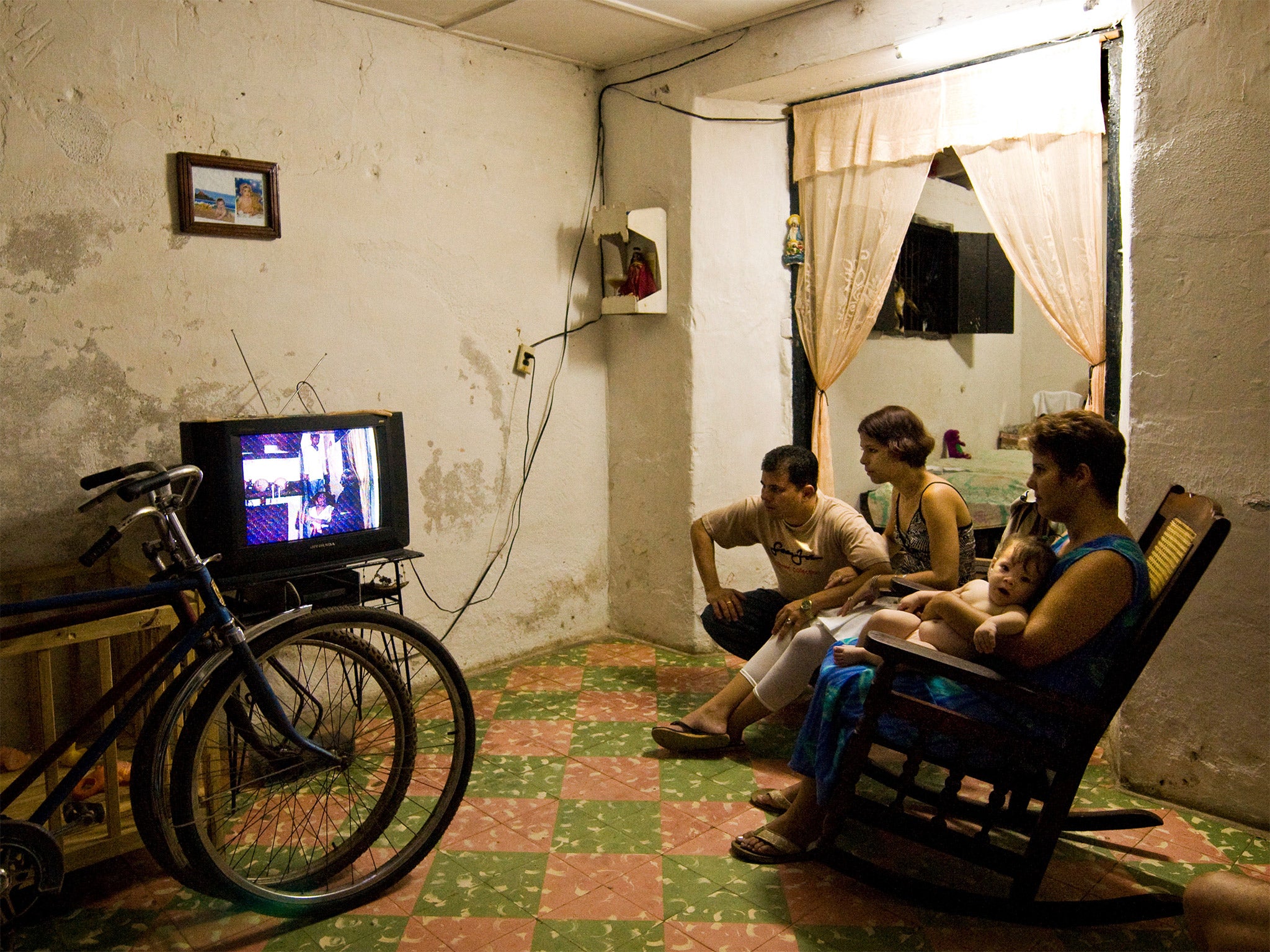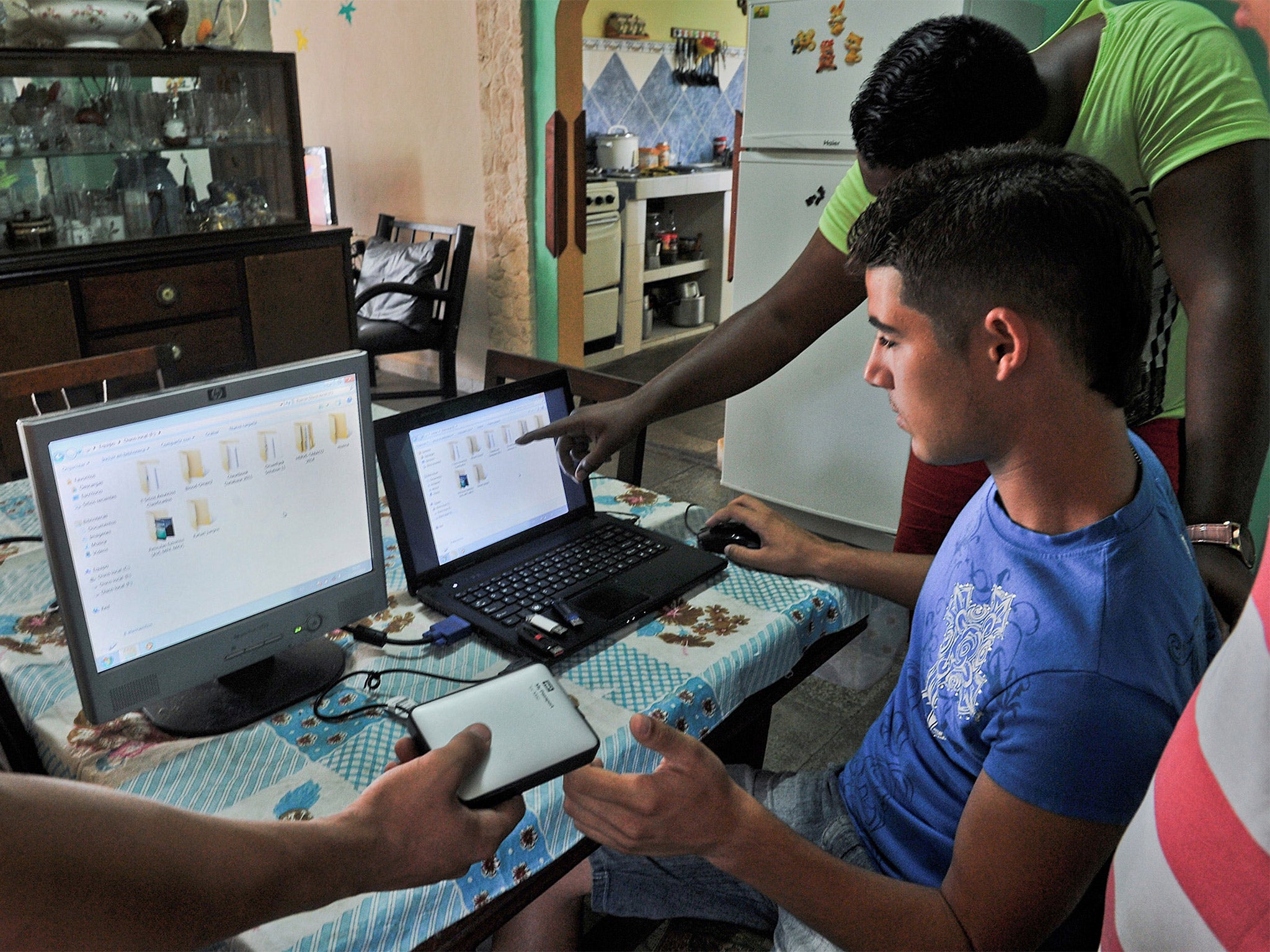Cuba edges nearer broadband revolution as Netflix launches its streaming service
Only 5 per cent of Cubans have access to the internet in their tightly controlled Caribbean nation. Will intervention by the US, and the launch of Netflix, start a broadband revolution?

If you believe official Cuban government statistics, some 23 per cent of Cubans are on the internet. (In the UK, 76 per cent of the population is online, according to the most recent ONS figures.)
But when Barack Obama's new approach to Cuba was announced last year, the US railed against that country's "internet penetration of about five per cent – one of the lowest rates in the world".
So, in the week that Netflix launches its streaming service in the republic, what's with that considerable gap, which represents whether about two million Cubans do or don't go online?
It's a matter of definition. The Cuban internet is different from the internet that most of the rest of the world knows. And on the Cuban version of the internet, there is no Twitter or YouTube, and few blogs or publications from the US or elsewhere beyond the boundaries of the island nation. Instead, as the internet researcher Sanja Kelly, of the pro-democracy group Freedom House, explains, the Cuba-wide web is limited to a national email system, some government-approved sites, a Cuban encyclopedia and little else.
So, while Cuba does have its own internet, the better term is probably intranet – like what you might have at work, except the entire country is on it and can't break past its borders. Given this relative paucity of content, Kelly says, "Most people just use it for email."
Of course, there are other countries that limit what their citizens can see online, including Russia and China. But Cuba doesn't rely upon the same sort of technological filtering to restrict where online Cubans might go, Kelly says. Instead, uniquely, the Cuban approach is far more binary.
"The government prefers to limit access [to the full, global internet] through a total lack of connectivity and artificially high prices," Kelly says.
Who, then, are the five per cent of Cubans who can go where they like online, and who will be the first people to sample Netflix's wares? Doctors, government lawyers, party officials and a handful of other "non-threatening" Cubans, Kelly says. These hold government-issued licences; and there are laws in place that make it illegal for online service providers to allow access to those without one.
Cuban officials have, in recent years, made public pronouncements about the need for the country to enter the digital age. Beginning in 2009, the Castro government began opening what would become about 100 internet cafés. But even there, subtle and not-so-subtle discouragements still exist.
Visiting international sites costs about seven times what it costs to get on the national intranet, or about £3 an hour; and given that the average monthly salary in Cuba is about £13, those price differences can be a very effective nudge towards sticking in the Cuban digital cul-de-sac.
Still, some resourceful Cubans have found ways around the restrictions. "A family member from abroad will bring a wi-fi set-up and patch into someone else's 3G connection," Julia Sweig, director of Latin America Studies at the Council on Foreign Relations, says.

Younger Cubans in particular will hang around outside hotels – where, inside, wealthy Cubans and foreigners can go online – and hop on wireless connections using borrowed passwords. And some Cubans have figured out how to have some benefits of the modern internet through what some in the field call "sneakernets", Sweig says. They'll go online and download movies, music and other materials and pass them around among friends and family on USB drives.
Will the US's negotiations with the Cuban government, which includes the promised loosening of restrictions on the import and sale of laptops and other telecommunications equipment, actually make it easier for more Cubans to roam far more freely online? At least one high-profile critic of Obama's Cuba policy has his reservations.
The Senator for Florida, Marco Rubio, has criticised the Obama administration for failing to get any meaningful concessions that might bring more Cubans truly online.
"The President said that the people of Cuba do not have access to advanced, 21st-century modern technology for communications and telecommunications because of the US embargo. That is false," Rubio says. "The notion that Cuba is going to allow the Cuban people access to any website they want is ridiculous."
© Washington Post
The American stream
By Brian Fung
So, Netflix is coming to Cuba. The service launched this week to what's basically a tiny sliver of the population (see main article). But all this probably foretells a much bigger expansion in internet access for Cuba, much sooner than anyone might have expected.
To understand why, we have to talk about something that in tech circles has been called the "virtuous cycle" of internet investment. The theory goes like this: when demand for services increases, internet providers make the necessary investment in their infrastructure to meet that demand. That capacity, in turn, drives more appetite for internet applications, which spurs more network upgrades, and so on and so on.
It's a bit of a chicken-and-egg question. Which is more responsible for broadband adoption? If the cycle really begins with new consumer-facing services, then that bolsters the case for policies that help internet businesses flourish (perhaps at the expense of the internet providers – for example, with a ban on the prioritisation of web traffic).
It's important to stress that this is just a theory about how the internet works. But Cuba is going to become a key test case for it, because the country has such limited existing infrastructure. This is why Netflix going to Cuba is such a big deal. At peak hours, the streaming video service accounts for a third of all American internet traffic and is the second-biggest driver of traffic on fixed networks the UK and Ireland. If House of Cards and Orange is the New Black are half as popular there as they are outside of Cuba, demand for the internet in Cuba is about to go through the roof. And that may mean a rapid expansion in the country's internet infrastructure.
What could be the one spoiler in this scenario? The Cuban government.
"Cuba is not a market economy," says Jonathan Nadler, a partner at the legal firm Squire Patton Boggs who has worked on international broadband issues. "The state-owned telecommunications company, ETESCA, has a monopoly." Whether ETESCA cedes some control over the Cuban internet – and agrees investment to expand it – is ultimately up to Havana.
Still, with the current Cuban situation, we're about as close to a natural experiment on internet adoption as we're likely to get, short of something like this happening in North Korea. And that makes Netflix's entry into Cuba incredibly exciting, because it suggests the country's internet pipes may get much, much bigger.
© Washington Post
Join our commenting forum
Join thought-provoking conversations, follow other Independent readers and see their replies
Comments
Bookmark popover
Removed from bookmarks